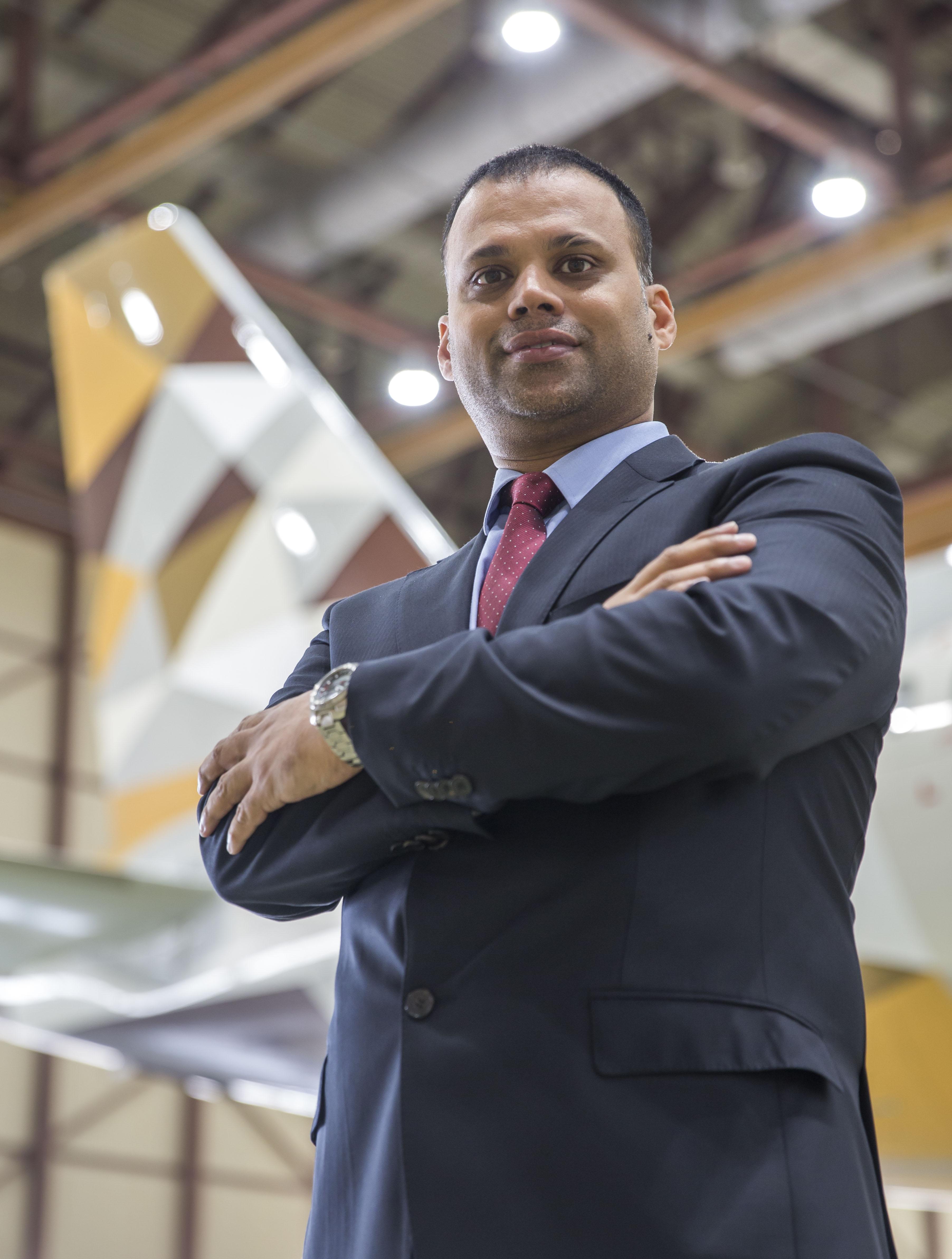
Etihad Airways Technical Training was forced to reinvent its methods of delivering aircraft maintenance training during the COVID-19 pandemic. Kevin Pereira, Etihad’s head of technical training, talks with Lindsay Bjerregaard about how the training organization has embraced digital transformation.
What was the biggest impact to Etihad Airways Technical Training during the COVID-19 pandemic and how did you adapt?
Pre COVID-19, the school used a face-to-face delivery approach with students and third-party clients getting together in a classroom and being taught in a traditional way.
Initially, when COVID-19 hit, our facility was closed by the UAE authorities. With the inevitable impact of COVID-19 on the worldwide aviation industry, travel was also not possible. Then, as internal and external customers realized the enormity of the pandemic, non-essential training requirements were curtailed and several courses were cancelled. However, there was still a demand for training, so we had to re-invent ourselves by fast-tracking our digital transformation.
Thinking outside of the traditional delivery methods, we embraced technology to deliver training whilst remaining compliant with regulatory requirements as well as global and local COVID-19 restrictions.
It is testament to my team the drive that followed to transform how we delivered learning. Distance learning became key, and physical classrooms were converted to house screens and cameras. All our training was delivered online, bringing with it a steep learning curve for my instructors and IT. We even had to adapt our training syllabi and strategies for examination.
Did you run into any regulatory challenges when it came to adapting coursework for an online format?
For aircraft type courses we need to adhere to 147 regulations, aligning to the requirements of the CAR/Part-66. These regulations, pre-COVID, were purely based on traditional delivery and made no provision for distance learning. EASA issued a concession for theoretical classes to be delivered remotely, but did not provide any concession with regards to examinations or practical training. The GCAA aligned with the EASA concession. Based on this concession and supporting guidelines, in September 2020 we re-wrote our expositions and supporting procedures, redefined our courses to include asynchronous learning elements and defined a system to conduct examinations remotely. These have been accepted by the regulatory bodies.
Have you implemented any new technologies to make digital-based training more robust?
Etihad Technical Training has always been at the forefront of digital transformation. This was demonstrated in 2015, when we were the only training organization in the Middle East that invested in what was, at that time, the leading Boeing and Airbus training simulation packages.
We have a belief that learning should not be an activity that has a fixed end date; moreover, it should be a perpetual pursuit for knowledge that recognizes that everyone is different and unique. As a result, we are currently working on using micro-learning, which aims at providing small activities that are constant, pertinent, timely and tailored to individuals’ competencies, abilities and state-of-mind.
Finally, we realize that the delivery of training to the students is only as good as the infrastructure and support that exists in the management and administration that sits behind. That’s why we are procuring a bespoke end-to-end Training Management System and an online examination system that can be remotely monitored, which uses a state-of-the-art facial recognition system for security.
How did you handle elements of training that require hands-on learning?
Prior to COVID-19, we already saw the benefit that such technologies could bring to the classroom, hence the reason we invested in the Desk Top Simulator system to support the B787 classroom as well as the Airbus Competence Trainer. Being part of an airline, we are also fortunate to have access to the Full Flight Simulators that are used for pilot training.
Additionally, we have looked at other options including advanced maintenance simulators and virtual reality products. Each new tool brings its own unique set of benefits and, as technology advances, the realism and value offered increases. However, at this moment in time, we believe there is no better substitute than learning directly from real aircraft. So, other than reducing the practical group size, to respect the authority and international guidelines, we will maintain the way the practical elements are delivered.
Considering lessons learned throughout the pandemic, what is next for Etihad in terms of how it delivers training? Are there any new developments on your roadmap?
We pride ourselves on what we do and we strive to be the best in the industry. We firmly believe in the mantra that constant change and a strive for excellence are the bedrocks to success and many lessons have been learned during the pandemic. The way the material is delivered may change, but the need for a well-qualified instructor, directly feeding the trainee, is essential for the excellent quality of training that Etihad Technical Training is constantly delivering.
As for investment to better the future of training resources, such as virtual reality or augmented reality, Etihad will always try to enhance and embrace such technology. It is true that the pandemic has hit the aviation industry hard and it is still unclear how long it will be for full recovery. However, our industry needs to invest in and encourage training organizations to integrate technology.





